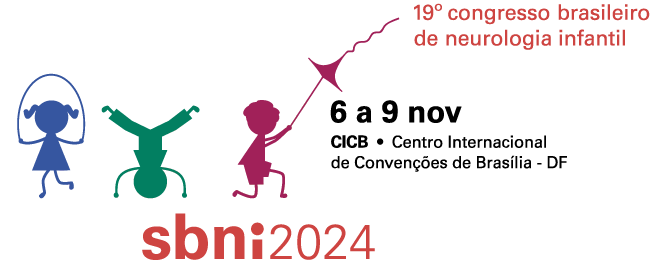Dados do Trabalho
Título
SOCIAL OUTCOMES OF ADULTS WITH CHILDHOOD AND ADOLESCENT-ONSET EPILEPSY FOLLOWED AT A TERTIARY CENTER
Introdução
Individuals with epilepsy often face social challenges due to various factors. It remains uncertain whether advancements in diagnosis, treatment, and stigma awareness over recent decades have improved social outcomes for those with childhood and adolescent-onset epilepsy.
Objetivo
To assess the social outcomes of adults with childhood and adolescent-onset epilepsy.
Método
We evaluated 96 patients over 21 years of age who had unresolved epilepsy (on anti-seizure medications, with or without current seizures) and seizure onset in childhood or adolescence, using a standardized questionnaire. Data collected included social prognosis, comorbidities, epilepsy characteristics, school difficulties, and family structure.
Resultados
The average age of participants was 35 years, with 56% being female. The most common education level was incomplete elementary school (38%), and only 7% had completed higher education. A history of school difficulties was reported by 63% of participants. Only 26% were employed, with average salaries ranging from 1 to 2 minimum wages. Most participants (68%) were single, and 30% had children, of whom 18% were from planned pregnancies. A majority (62%) lived with their parents, and 67% required financial support from family members. Only 18% held a driver's license, and half found their social life satisfactory. No significant differences were found between those with or without current seizures or early (less than 3 years) versus late seizure onset regarding school support needs, marital status, children, employment, social life satisfaction, salary, financial support, home ownership, or quality of life. However, patients with intellectual disability had higher rates of early seizure onset, lower employment, higher rates of living with parents, and lower rates of home ownership (Chi-square, p=0.004; 0.014; 0.037; 0.046, respectively).
Conclusão
Adults with childhood and adolescent-onset epilepsy experience substantial social challenges, irrespective of seizure control or age of onset. Early seizure onset is associated with a higher risk of intellectual disability, which adversely affects social outcomes, particularly in terms of employment and financial stability. These findings underscore the need for targeted interventions to improve social integration and support for individuals with epilepsy, especially those with early onset and associated intellectual disabilities.
Referências
1-Hermann BP, Schwartz MS, Karnes WE, Vahdat P. Psycho-pathology in epilepsy: relationship of seizure type to ageat onset. Epilepsia 1980;21(1):15—23.
2-Achenbach TM. Manual for the child behavior checklist, vol4—18. Burlington, VT: University of Vermont Department of Psychiatry; 1991a.
3-Berg AT, Testa FM, Levy SR. Complete remission in nonsyndromic childhood-onset epilepsy. Ann Neurol. 2011;70:566-573.
Williams J, Griebel ML, Dykman RA. Neuropsychological pat-terns in pediatric epilepsy. Seizure 1998;7:223–38.
Palavras Chave
epilepsy; Outcome social; intellectual disability
Área
Epilepsias
Autores
VICTORIA DE SOUZA DAMIAO, ANA CAROLINA VICTORIA COAN
